Embark on a journey of self-discovery and mental wellness as we delve into the timeless theme of New Year’s resolutions. Discover a curated selection of classic and contemporary plays that skillfully tackle the nuances of mental health and self-care.
Winner of the 1949 Tony Award® for Best Play and the 1949 Pulitzer Prize for Drama

Photo by Joan Marcus at the Hudson Theatre
The Story: The story revolves around the last days of Willy Loman, a failing salesman, who cannot understand how he failed to win success and happiness. Through a series of tragic soul-searching revelations of the life he has lived with his wife, his sons, and his business associates, we discover how his quest for the “American Dream” kept him blind to the people who truly loved him. A thrilling work of deep and revealing beauty that remains one of the most profound classic dramas of the American theatre.
Winner of the 1948 Pulitzer Prize for Drama
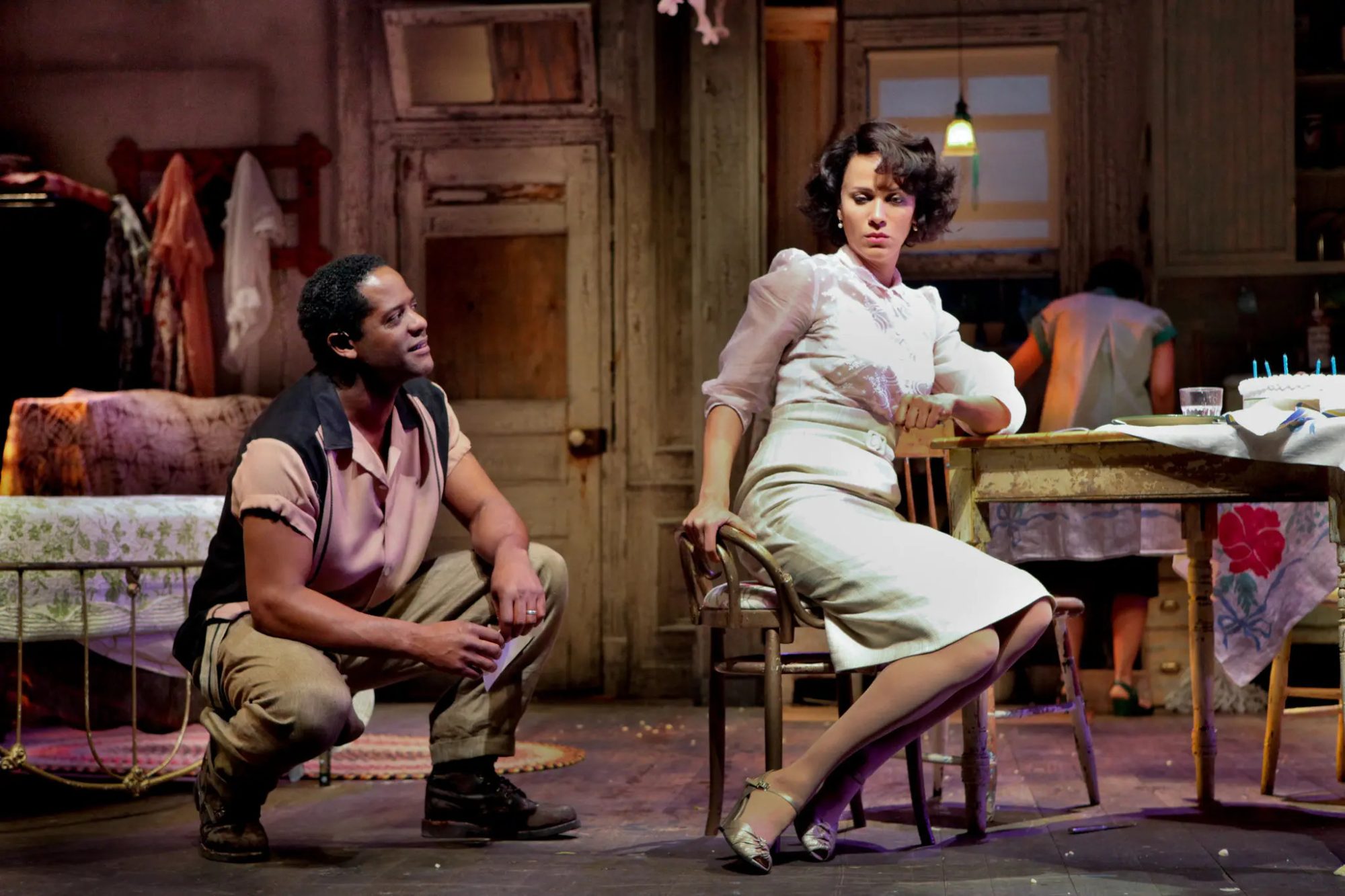
Photo by Sara Krulwich at the Broadhurst Theatre
The Story: The play reveals to the very depths the character of Blanche DuBois, a woman whose life has been undermined by her romantic illusions, which lead her to reject—so far as possible—the realities of life with which she is faced and which she consistently ignores. The pressure brought to bear upon her by her sister, with whom she goes to live in New Orleans, intensified by the earthy and extremely “normal” young husband of the latter, leads to a revelation of her tragic self-delusion and, in the end, to madness.
Harvey by
Winner of the 1945 Pulitzer Prize for Drama

Photo by Joan Marcus. Roundabout Theatre Company at Studio 54
The Story: Elwood P. Dowd insists on including his friend Harvey in all of his sister Veta’s social gatherings. Trouble is, Harvey is an imaginary six-and-a-half-foot-tall rabbit. To avoid future embarassment for her family—and especially for her daughter, Myrtle Mae—Veta decides to have Elwood committed to a sanitarium. At the sanitarium, a frantic Veta explains to the staff that her years of living with Elwood’s hallucination have caused her to see Harvey also, and so the doctors mistakenly commit her instead of her mild-mannered brother. The truth comes out, however; Veta is freed, and the search is on for Elwood, who eventually arrives at the sanitarium of his own volition, looking for Harvey. But it seems that Elwood and his invisible companion have had a strange influence on more than one of the doctors. Only at the end does Veta realize that maybe Harvey isn’t so bad after all.
Rabbit Hole by
Winner of the 2007 Pulitzer Prize for Drama
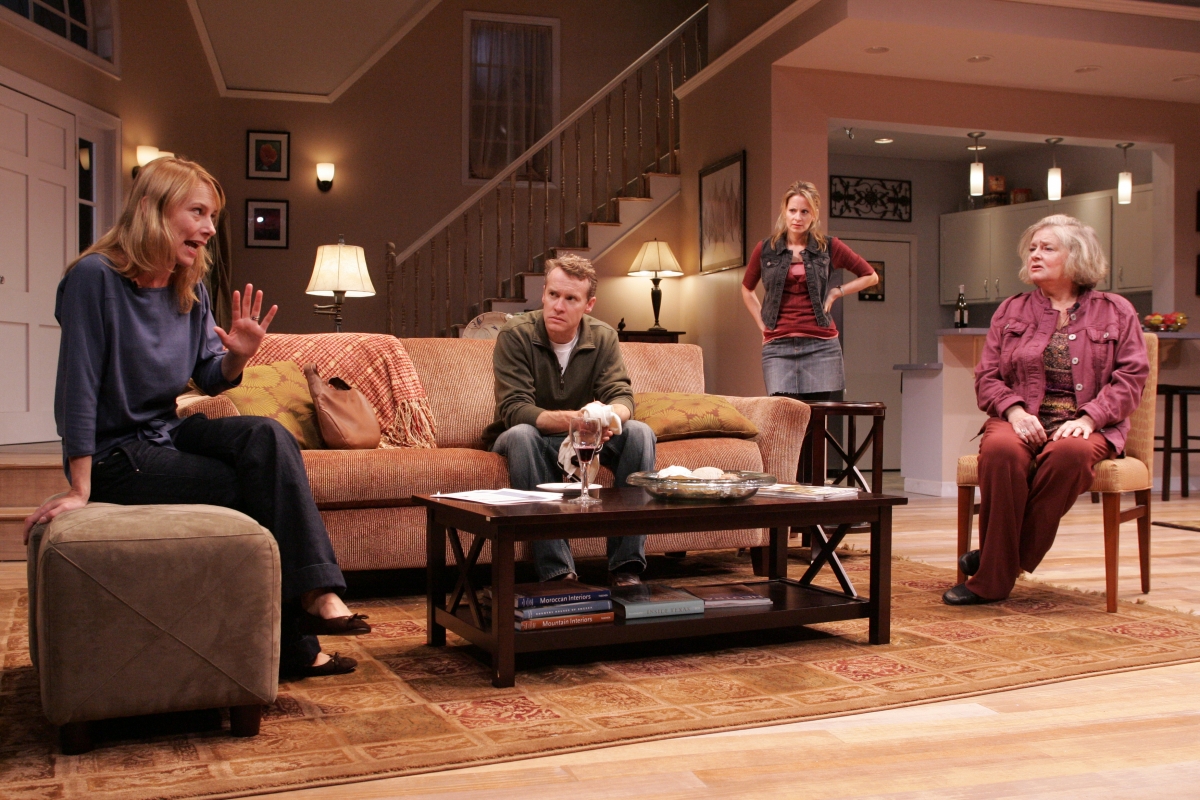
Photo courtesy to Geffen Playhouse
The Story: Becca and Howie Corbett have everything a family could want, until a life-shattering accident turns their world upside down and leaves the couple drifting perilously apart. RABBIT HOLE charts their bittersweet search for comfort in the darkest of places and for a path that will lead them back into the light of day.
Gloria by
Finalist for the 2016 Pulitzer Prize for Drama
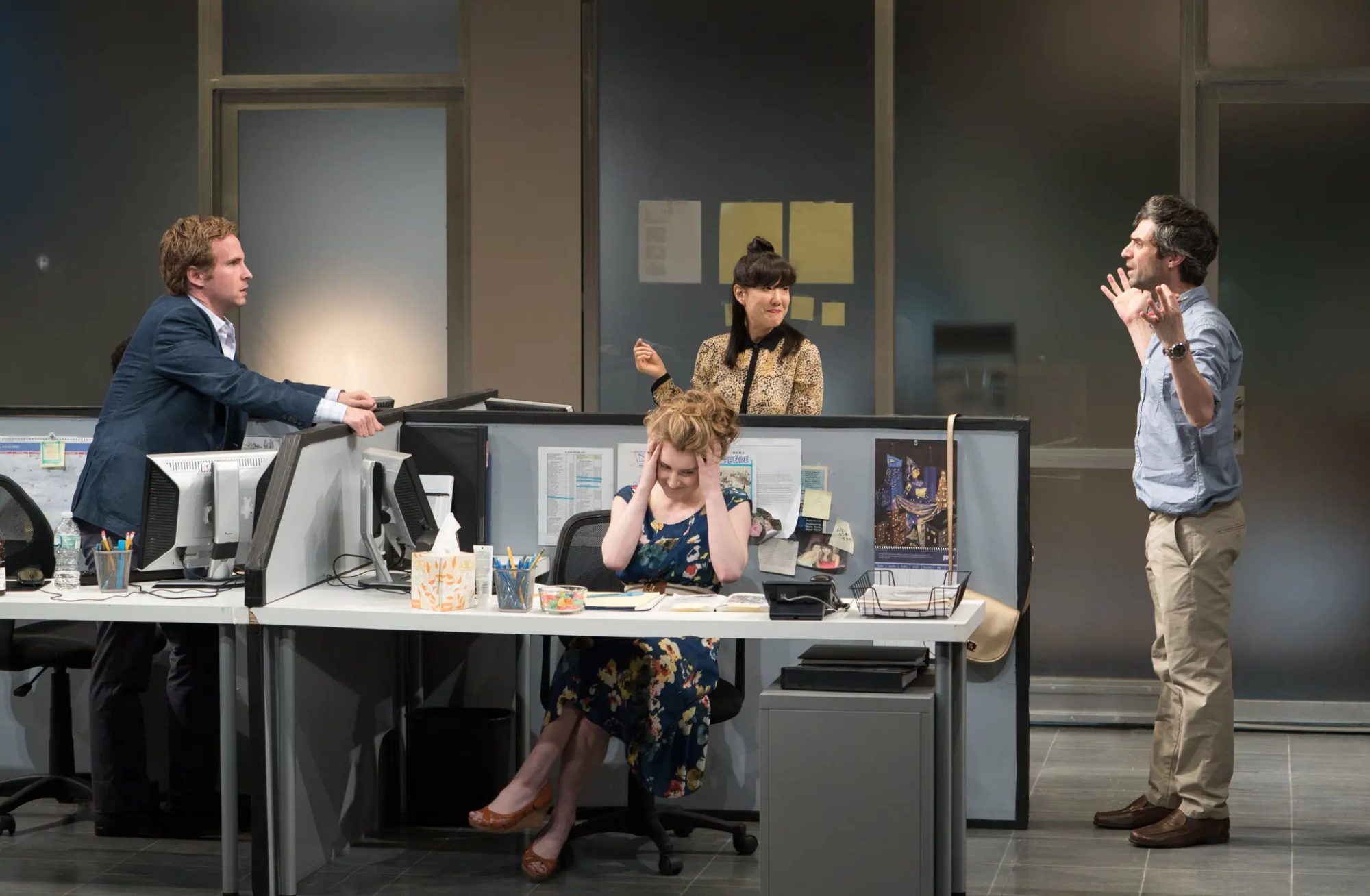
Photo by Sara Krulwich at the Vineyard Theatre
The Story: This funny, trenchant, and powerful play follows an ambitious group of editorial assistants at a notorious Manhattan magazine, each of whom hopes for a starry life of letters and a book deal before they turn thirty. But when an ordinary humdrum workday becomes anything but, the stakes for who will get to tell their own story become higher than ever.
Misery by William Goldman, based on the novel by Stephen King
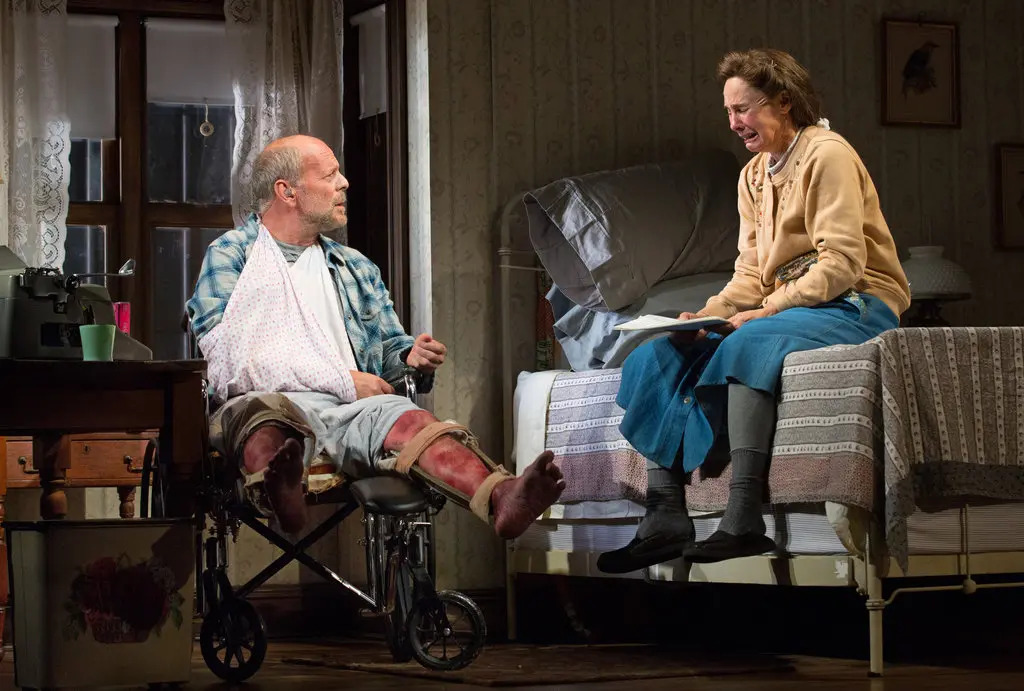
Photo by Sara Krulwich at the Broadhurst Theatre
The Story: Misery follows successful romance novelist Paul Sheldon, who is rescued from a car crash by his “number one fan,” Annie Wilkes, and wakes up captive in her secluded home. While Paul is convalescing, Annie reads his latest book and becomes enraged when she discovers the author has killed off her favorite character, Misery Chastain. Annie forces Paul to write a new Misery novel, and he quickly realizes Annie has no intention of letting him go anywhere. The irate Annie has Paul writing as if his life depends on it, and it does.
The Effect by

Photo by Matthew Murphy at the Barrow Street Theatre
The Story: Hearts racing. Minds reeling. Knees buckling. Connie and Tristan have palpable chemistry—or is it a side effect of a new antidepressant? They are volunteers in a clinical trial, but their sudden and illicit romance forces the supervising doctors to face off over the ethical consequences of their work. THE EFFECT takes on our pill-popping culture with humor and scintillating drama.
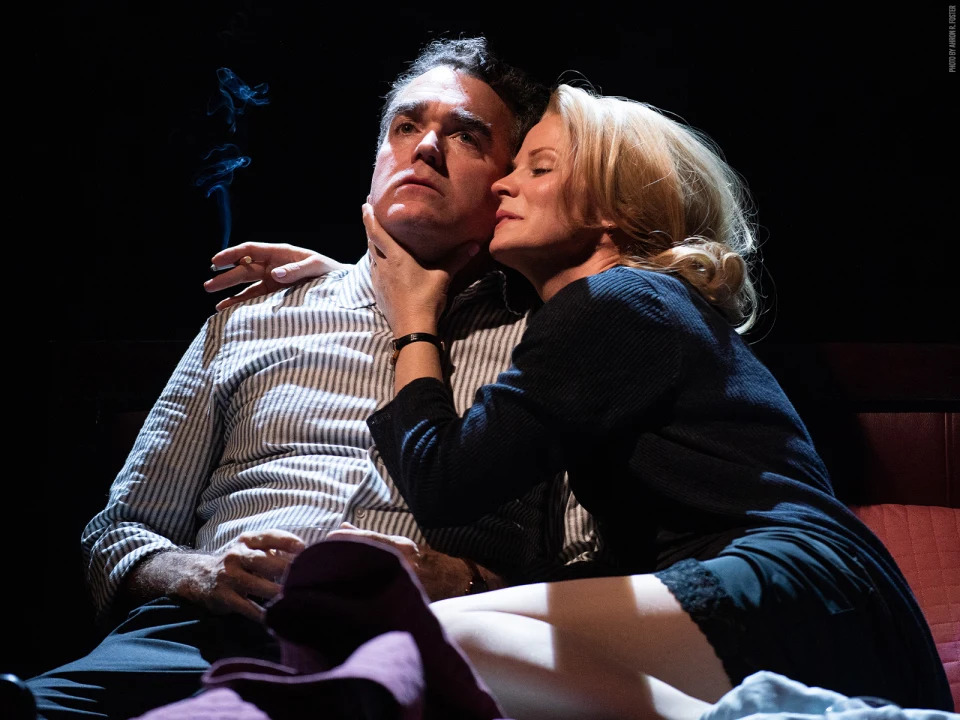
Photo by Ahron R. Foster at Studio 54
The Story: In the fast-moving milieu of Madison Avenue, social drinking is almost an occupational necessity, and one that fast-rising young Joe Clay adopts with too ready ease. Unfortunately the girl he meets and marries shares his proclivity, and while they continue to tell themselves that they drink because they choose to, it is soon apparent that their habit has become a serious problem. But their failure to acknowledge this plunges them headlong into the shattering events of the play—a career in shambles, a marriage destroyed, the esteem of friends and family lost, and a child who has become the innocent victim of their obsession. In the poignant ending of the play a spectre of hope arises but, more important, so does a galvanizing awareness of the depth of their torment, and of the lesson that their compulsive self-destruction must have for others.
Sandblasted by
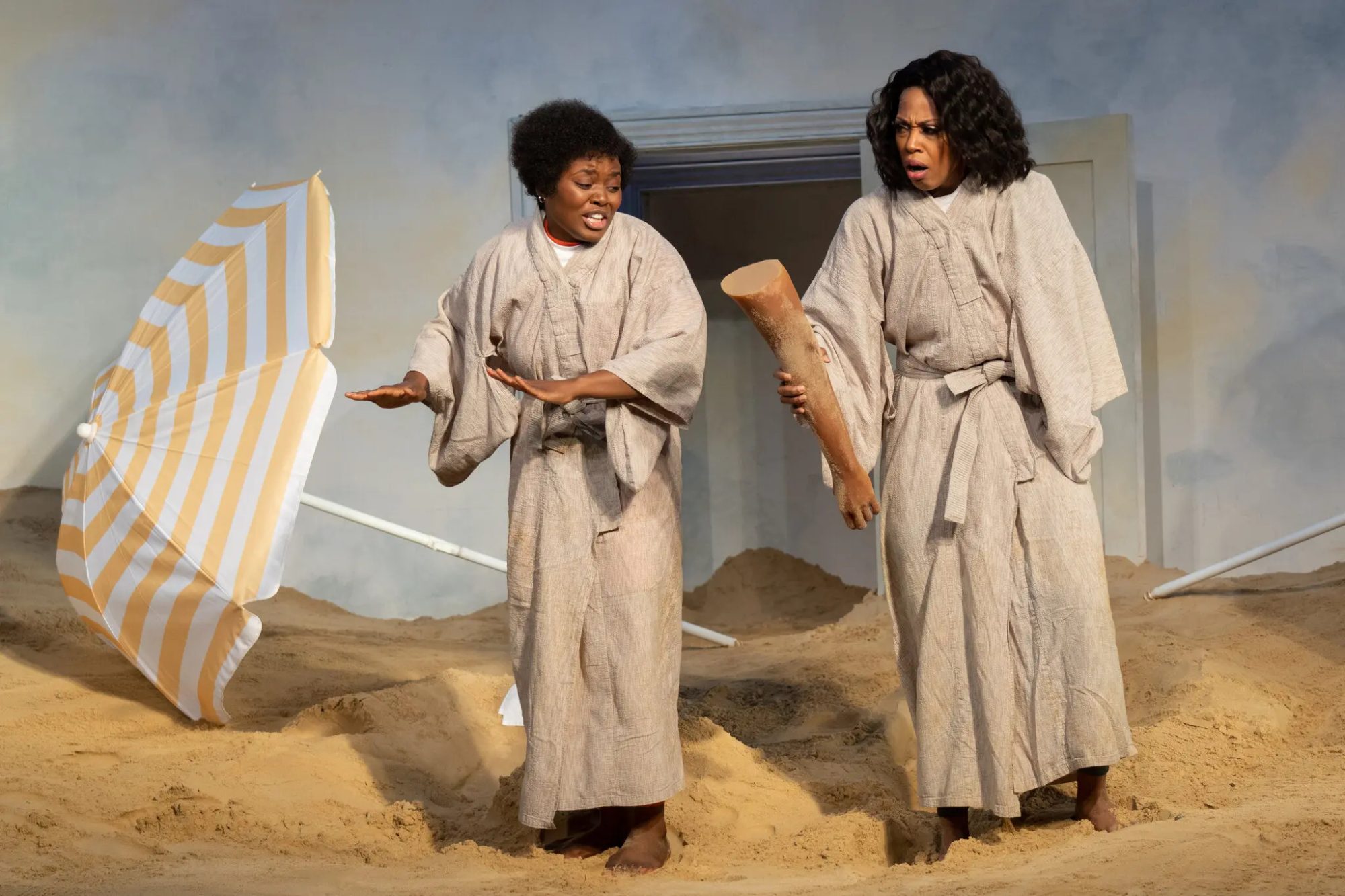
Photo by Sara Krulwich at the Vineyard Theatre
The Story: Angela and Odessa are on a sandy search for something that might not be real, but they are determined to make a way out of no way. When they stumble upon Adah—that’s right, THE Celebrity-turned-Wellness-Maven Adah—they decide to follow her lead, not knowing that the journey could very well be the cure.
The Father: A Tragic Farce by Florian Zeller, translated by Christopher Hampton
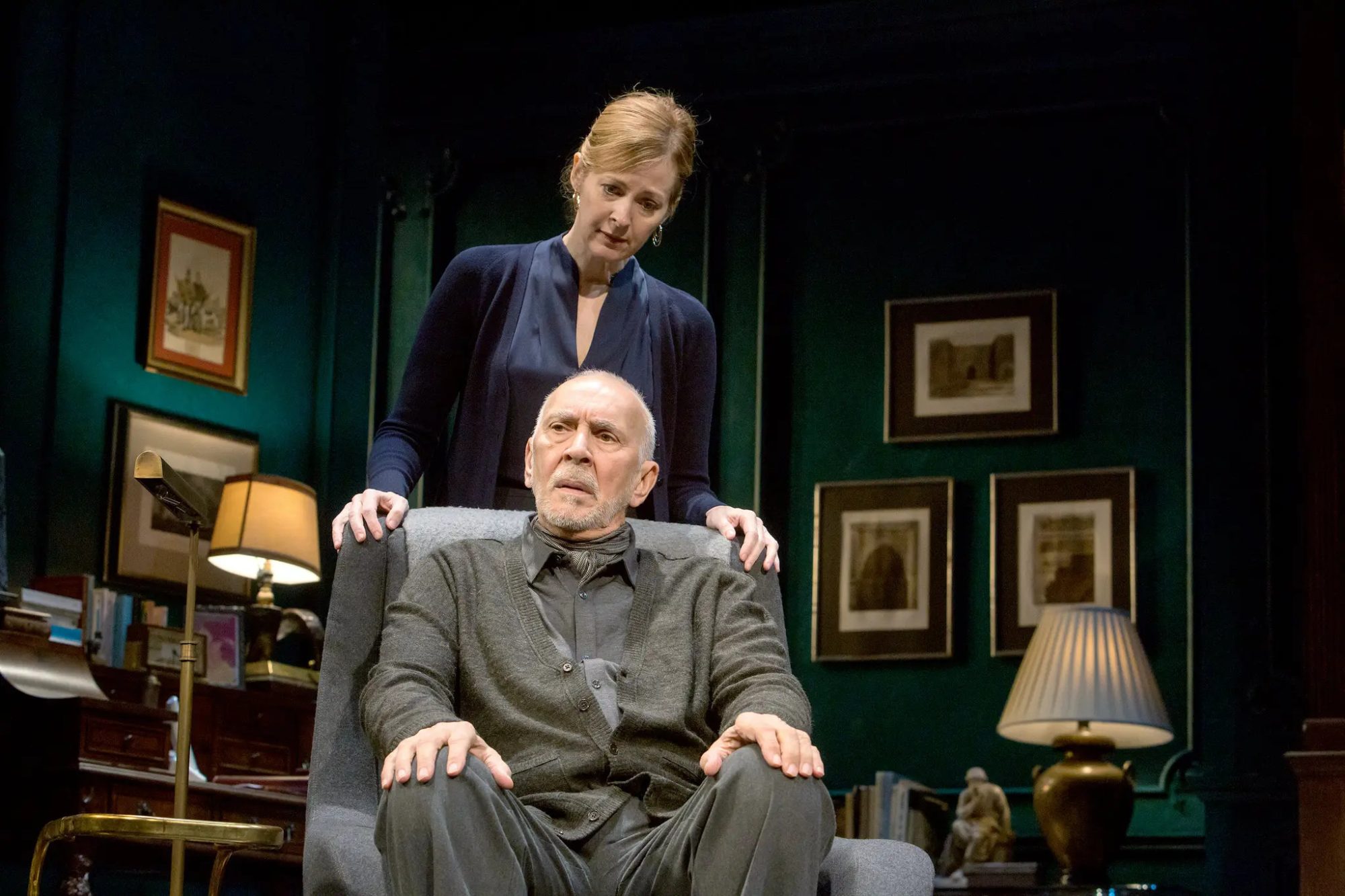
Photo by Sara Krulwich at the Samuel J. Friedman Theatre
The Story: Now 80 years old, André was once a tap dancer. He lives with his daughter, Anne, and her husband, Antoine. Or was André an engineer, whose daughter Anne lives in London with her new lover, Pierre? The thing is, he is still wearing his pyjamas, and he can’t find his watch. He is starting to wonder if he’s losing control.
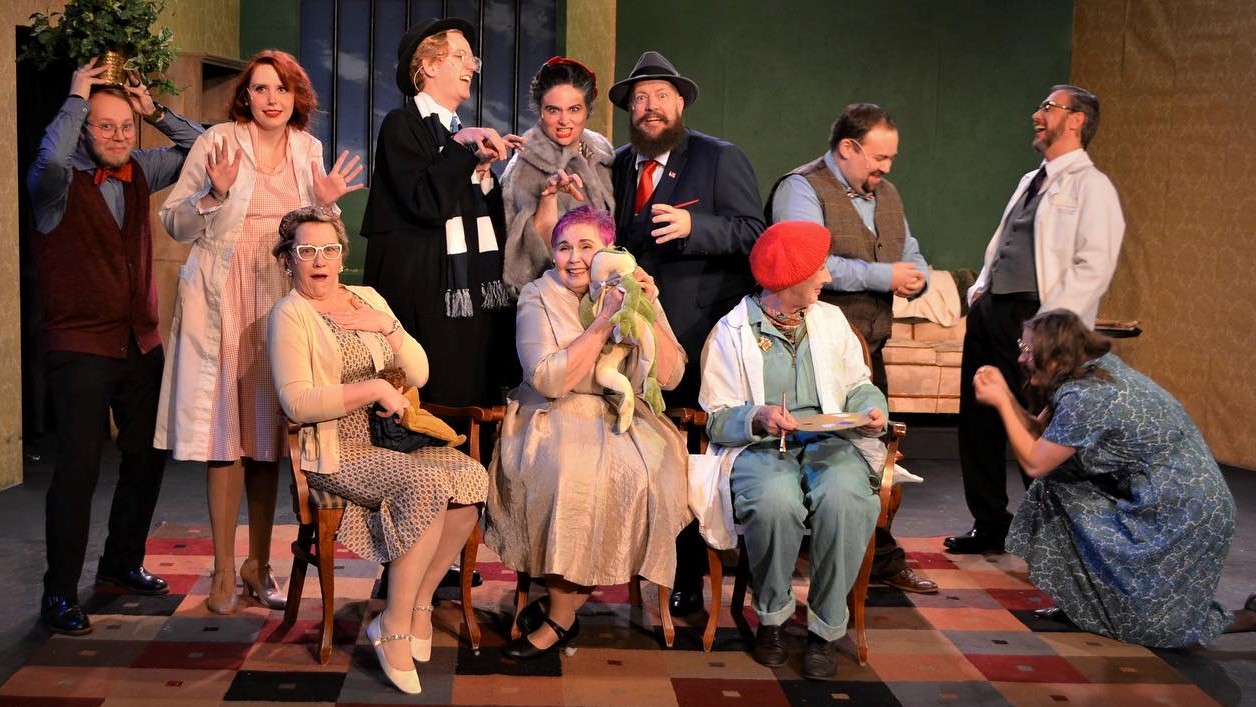
Photo courtesy to Utah Theatre Bloggers Association at the Heritage Theatre
The Story: Mrs. Savage has been left ten million dollars by her husband and wants to make the best use of it, in spite of her grown-up stepchildren’s efforts to get their hands on it. Knowing that the widow’s wealth is now in negotiable securities, and seeing they cannot get hold of the fortune, the stepchildren commit her to a sanatorium hoping to “bring her to her senses.” In the sanatorium Mrs. Savage meets various social misfits, men and women who just cannot adjust themselves to life, people who need the help Mrs. Savage can provide. In getting to know them, she realizes that she will find happiness with them and plans to spend the rest of her life as one of them. But when the doctor tells her there is no reason why she should remain, she hesitates to go out into a hard world where people seem ready to do anything for money. The self-seeking stepchildren are driven to distraction by their vain efforts to browbeat Mrs. Savage, but she preserves her equanimity and leads them on a merry chase. At last her friends conspire to get rid of her stepchildren, and through their simple belief in the justice of her cause, they enable Mrs. Savage to carry out her plans to establish a fund to help others realize their hopes and dreams. The dominant mood is high comedy, and the audience is left with a feeling that the neglected virtues of kindness and affection have not been entirely lost in a world that seems at times motivated only by greed and dishonesty.
Every Brilliant Thing by Duncan Macmillan, with Jonny Donahoe

Photo by Sara Krulwich at the Barrow Street Theatre
The Story: You’re six years old. Mum’s in hospital. Dad says she’s “done something stupid.” She finds it hard to be happy. So you start to make a list of everything that’s brilliant about the world. Everything that’s worth living for. 1. Ice cream. 2. Kung Fu movies. 3. Burning things. 4. Laughing so hard you shoot milk out your nose. 5. Construction cranes. 6. Me. You leave it on her pillow. You know she’s read it because she’s corrected your spelling. Soon, the list will take on a life of its own. A play about depression and the lengths we will go to for those we love.
Bad Seed by Maxwell Anderson, from William March’s novel
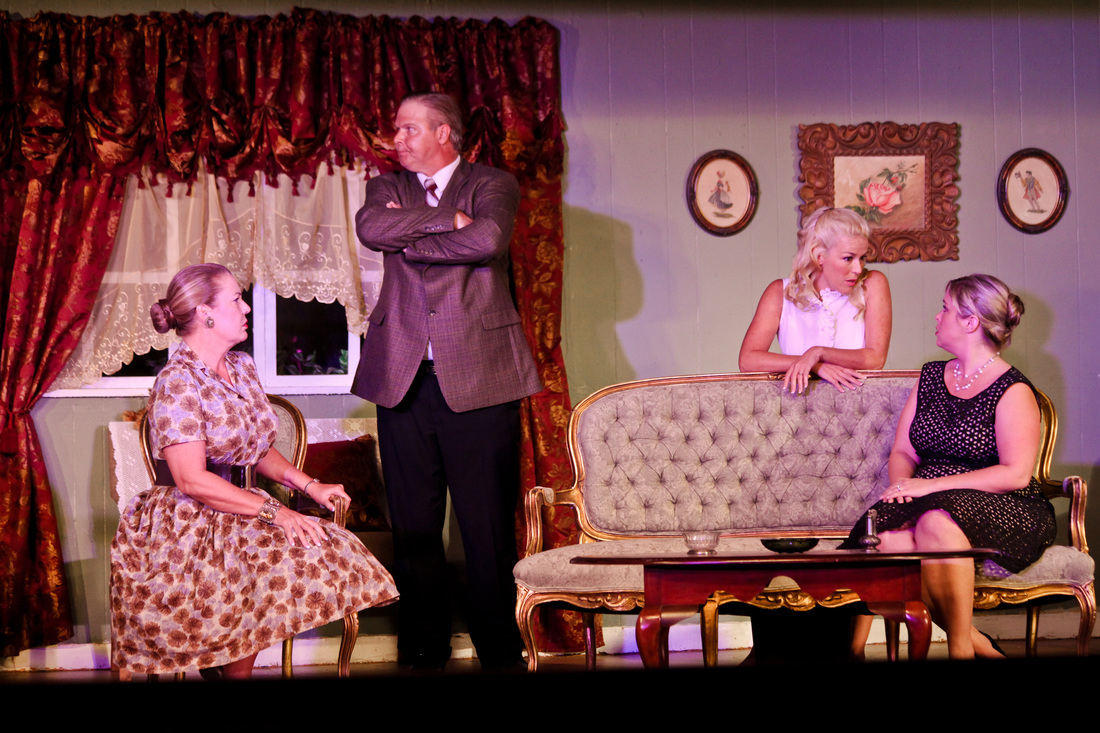
Photo courtesy to Theatre Off the Square
The Story: The scene is a small Southern town where Colonel and Christine Penmark live with their daughter, Rhoda. Little Rhoda Penmark is the evil queen of the story. On the surface she is sweet, charming, full of old-fashioned graces, loved by her parents, admired by all her elders. But Rhoda’s mother has an uneasy feeling about her. When one of Rhoda’s schoolmates is mysteriously drowned at a picnic, Mrs. Penmark is alarmed. For the boy who was drowned was the one who had won the penmanship medal that Rhoda felt she deserved.
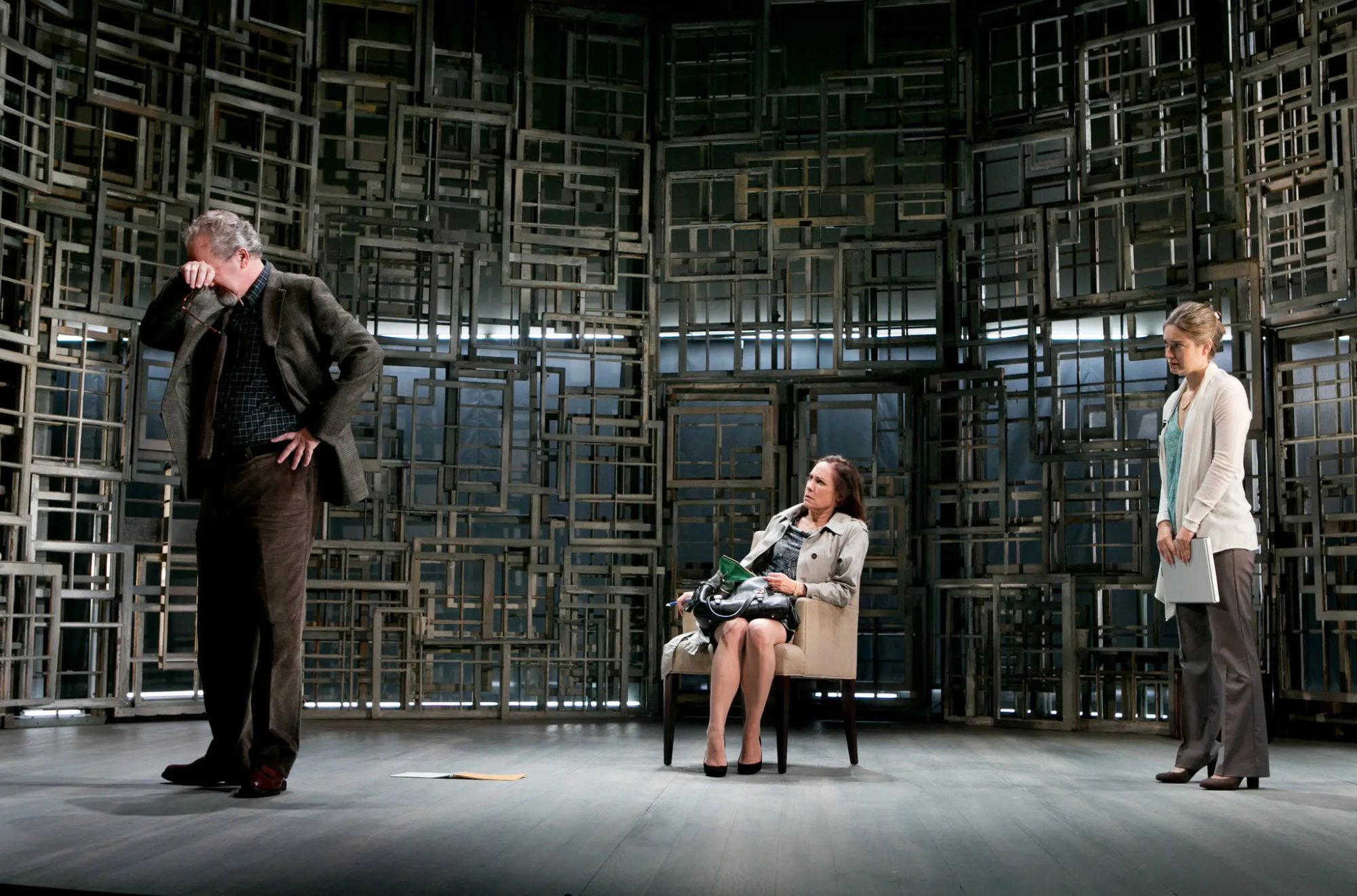
Photo by Sara Krulwich at the Friedman Theatre
The Story: Just as Juliana Smithton’s research leads to a potential breakthrough, her life takes a disorienting turn. During a lecture to colleagues at an exclusive beach resort, she glimpses an enigmatic young woman in a yellow bikini amidst the crowd of business suits. One step at a time, a mystery unravels as contradictory evidence, blurred truth and fragmented memories collide in a cottage on the windswept shores of Cape Cod.
The Story: In the overwhelming quiet of the woods, six runaways from city life embark on a silent retreat. As these strangers confront internal demons both profound and absurd, their vows of silence collide with the achingly human need to connect. Filled with awkward humor, this strange and compassionate new play asks how we address life’s biggest questions when words fail us.






